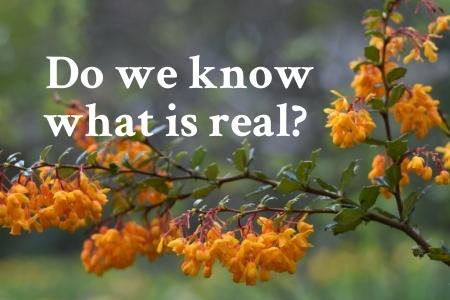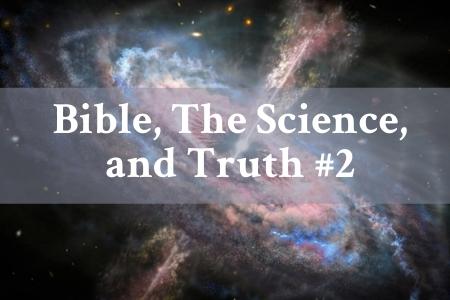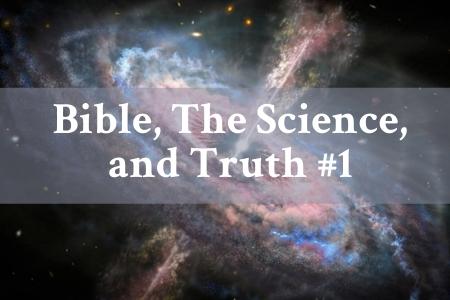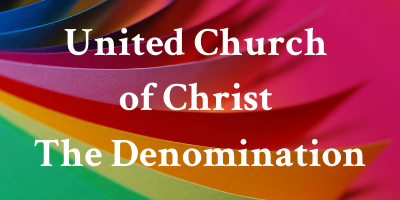
Do We Know What Is Real?
Long ago, I spent a couple of weeks getting to know a brilliant professional theologian who had already written an entire shelf of books, while letting him get to know me. This was of vital importance at the time because I was proposing to marry his daughter. The one serious sticking point came up when he framed a question as if it was about acting as an umpire at a baseball game. A pitched ball had crossed home plate, and the batter had held still as it passed. Some observers said that it was a ball because the pitched was just out of the strike zone, and some said that no it had been a strike. How, the theology professor asked, would I solve the dispute? Was there an absolute measure that could be arrived at, or was everything just relative depending upon one’s point of view?
“Oh poop,” I thought. I could see the trap. What my prospective father-in-law was asking was, “Did I accept that what seems obvious is reality, or was I infected with that deconstructionist, post-modern radicals who basically implied that nothing is actually real? Well, I was not in the camp that he was so unhappy with, but neither was I as naive about accepting as absolute what our senses tell us as he, a person of an earlier intellectual era, insisted upon being. I was unprepared, and fudged my answer, fuzzing up the edges of what I said.
But I have faced this same question often in the years since, and understand how to clarify what has to be expressed fairly well. What I’m going to give you now is an explanation written as dialogue between a fairly advanced human being of a future time, and an alien with whom she is creating a friendship. The whole story is not written here, only the snippet that expresses an answer to the nature of the “Reality,” within which we all exist:
“This is, I say, good. This, Megan Joy Brown, newest friend, is first the question from me. What mean you with this strange snippet of words, “Ultimate reality?” Is not what is real simply what is real? How then is some reality ‘Ultimate,’ indicating in this tongue of yours, more real than what is real? How is such a statement not, as you say, ‘Crazy?’” Megan Joy is relieved because this is a serious question that shows that the non-human female has placed her attention upon the actual content of what has been said, but this particular inquiry is not beyond Ms. Brown’s ability to answer. She clears her throat. “We each, my friend, experience the reality that we see, hear, and feel with our nervous systems. These systems are set up to keep us alive, and not to give us accurate scientific data. The two purposes overlap much of the time, but not always.”
“How is this? Understand I not this.” Megan Joy takes a deep breath before plunging in. “I cannot tell you about how your own nervous system works my non-human friend, but I can tell you about mine, because it is similar for all of us who are human and what is human is well studied. Let me start with color. My eyes show a specific spectrum of vibrational frequencies as colored light, and they do this only for those few chosen frequencies. There are infinitely more vibratory frequencies that might be perceived, but I do not see them.
“Instead, everything in this entire visible universe that is vibrating slower than the specific band of frequencies that my eyes see, strikes me as black. Everything vibrating faster than that band is also black to me. I experience a hue that I call black, that is either moving faster or moving slower than let us say yellow, and I simply do not know the difference. Under most circumstances this has no bearing on my survival, but in a laboratory…? You can, my Spacer friend, understand that this might be another story entirely?
“Black? What is black might but many colors unknown? This is disturbing.”
“Oh, just talking about vision, that isn’t even the half of it. Half of what I see, what any human sees, is not coming up my optic nerve from my eyes. Half of what I see is actually manufactured in my brain from memory and expectation. This is what causes smooth, no-gap perception, even though new information has to be processed before it is perceived, it is also why my kind are so often shocked to see how someone has grown so much older when we have not seen them for a while, but we take their aging in stride when we have seen them every day. You do understand this, surely?”
The ungainly being mimes a human nod, but says nothing more.
“Well, far more importantly, something similar is happening in the front part of our brains as we go through life,” Megan Joy drills down deeper. “Only this is not because of our being stuck with original equipment like the color sensing in our eyes, but because we are not stuck at all. Here is the situation: I am going to arrive at an understanding of the situation around me so that I have a way to understand how I fit, and what makes things happen. This we call a world-view/self-image. Self-image and worldview are always paired, and each forms a container for the other. On the other hand, every time I discover, through frustrating experience, that my present world-view/self-image is inadequate, I feel like I have run up against an unyielding bulkhead like the inner walls of this interstellar vessel, smashed my face against the thing or something.
“The more desperately I try to claw through that solid barrier the more frustrated I get. When I finally let go and stop thinking, my brain actually disassembles part of itself, “pruning” we say, many of its nerve bundles, then re-formats them more complexly. Meaning reconfigured with many more cross-connections, as well as possibly more nerves altogether. Suddenly I can think thoughts, and solve dilemmas that I was incapable of thinking or solving before, and I set off to do just that. But this leads to a new problem that my species did not understand for the longest time. I now tend to see everyone who has not reconfigured as many times as have I, to be backward and stupid, and I also continue to regard anyone who has re-formatted more often as foolish, unrealistic, and untrustworthy, so I will be wary of everything that such a person might think, say, or do.
“Do you see what this neurologic situation naturally, and inevitably leads to? We unfortunate humans, for most of our history have, because we could not see into our own physical brains, found that we hold to ideas, philosophies, cultures, what have you, that must simply contradict one another, and fight over those contradictions as if they are not only real in the outer “Real” world, but of vital importance. Therefore, my personal reality and my neighbor’s reality will be in each case not an ultimate reality after all, but we will still kill each other in defense of what we each say is reality. There are quite a number of other examples that I might give, but is this pair sufficient to give you a basic picture?”
The listening alien is horrified. “How can you then continue to exist?”
OK! If you are personally eager to have ever deeper levels of reality within your own grasp, or merely wish to explore the “whichness of why,” and what makes that old mystery tick, then please, sign up joyfully, delightedly, ebulliently to receive our Christ the Healer UCC newsletter.
And even better, join our interactive community, take part in our exercises and offerings, and participate in the ongoing, ever-evolving fun. We are ready to welcome you with wide-open arms!




